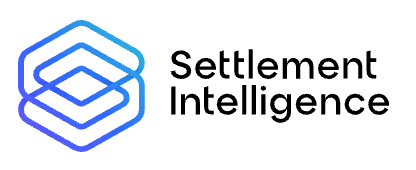Should Lawyers Use ChatGPT with Medical Records?
Share
Why Personal Injury Lawyers Must Think Twice Before Trusting ChatGPT with Medical Records
The allure of AI-driven efficiency is undeniable, and ChatGPT has rapidly become a popular tool for streamlining workflows across many industries, including the legal profession. However, personal injury lawyers must exercise caution when considering using ChatGPT for reviewing and summarizing clients' medical records. Recent headlines detailing lawyers facing reprimand or disbarment due to improper use of AI underscore the gravity of these risks. Below are five compelling reasons why trusting ChatGPT with sensitive medical information is a bad choice.
5 Reasons to Not Use ChatGPT for Medical Chronologies
1. Security and Confidentiality Risks
First and foremost, ChatGPT and other large language models (LLMs) are not secure platforms for transmitting protected health information (PHI). Lawyers are bound by strict professional and legal obligations—such as HIPAA compliance and client confidentiality mandates—to safeguard sensitive client data. OpenAI itself explicitly advises users against uploading sensitive or confidential data to ChatGPT due to security and privacy concerns. Attorneys risk severe legal repercussions, including sanctions and potential disbarment, by inadvertently exposing confidential medical information.
2. Questionable Expertise Behind the AI
ChatGPT, though sophisticated, has not been explicitly trained by medical or legal experts specifically for the nuanced tasks associated with medical record analysis. Its training involves generalized data from diverse internet sources, which may include inaccuracies or incomplete information.
Consequently, ChatGPT lacks the expert-level understanding required to accurately interpret complex medical terminology, diagnoses, treatments, and prognoses. Reliance on generalized AI models can result in critical oversights or misinterpretations, leading to serious legal pitfalls. Moreover, it certainly is not pulling the data used by insurance companies to determine settlement offer for a demand letter, or the information a lawyer needs to know about a client's injuries if going to trial.
3. Accuracy and Reliability Concerns
Even with precise prompts and fine-tuning, the accuracy of ChatGPT's outputs when reviewing medical records remains unreliable. Personal injury cases depend heavily on meticulous accuracy in medical evaluations. Especially when it comes to motor vehicle accident cases, where specific details are required by insurance AI in order to maximize settlement value. A single oversight or misinterpreted detail could jeopardize a lawyer’s ability to negotiate effectively with insurance adjusters or present compelling evidence in court. Lawyers must ensure the integrity of their case strategies—something not guaranteed by relying on AI-generated summaries.
4. Professional Reputation at Stake
Lawyers build their practices and reputations on trust, accuracy, and attention to detail. Utilizing ChatGPT without appropriate verification for accuracy introduces unnecessary risk. Any errors in AI-generated summaries—particularly in sensitive medical contexts—can significantly damage an attorney’s credibility with clients, opposing counsel, judges and juries. Moreover, bar associations and regulatory bodies increasingly scrutinize the use of AI tools, and careless use could swiftly escalate into disciplinary actions or public reprimand.
5. Potential Legal and Ethical Violations
Beyond reputational damage, improper handling of medical records through unsecured AI platforms poses tangible ethical and legal risks. Violations of confidentiality and privacy standards, particularly concerning Protected Health Information (PHI), can lead to regulatory investigations, fines, and even malpractice lawsuits. The ramifications extend beyond the individual lawyer to the entire firm, potentially incurring significant financial costs and damage to the lawyer's professional reputation.
The Better Path Forward
While AI technology promises enhanced productivity, personal injury lawyers must approach its use with caution, particularly when dealing with sensitive medical records. Properly vetted, secure, and professionally trained AI solutions tailored specifically for medical-legal applications exist and provide a safer, more compliant alternative. Lawyers seeking efficiency through technology should prioritize solutions designed explicitly to meet the legal industry's stringent standards and confidentiality requirements.
In short, for personal injury lawyers contemplating ChatGPT as a tool for medical record summarization, the risks outweigh the convenience. Protect your clients, your reputation, and your practice by maintaining vigilance in data security and accuracy. Trust only proven, secure, and expert-validated tools specifically crafted for medical-legal work to ensure compliance, accuracy, and professional integrity.
At Settlement Intelligence, we’re building AI-native tools that are not only secure and reliable, but our patented, expert-trained technology delivers medical timelines and demand letters optimized for insurance claims evaluation software like Colossus, LNav and ClaimIQ.
Experience the next generation of legal automation and subscribe to Settlement Intelligence today.
Author
This blog was written by legal consultant Charlette Sinclair, nationally renowned expert on personal injury demand letters, and CEO of Settlement Intelligence.
